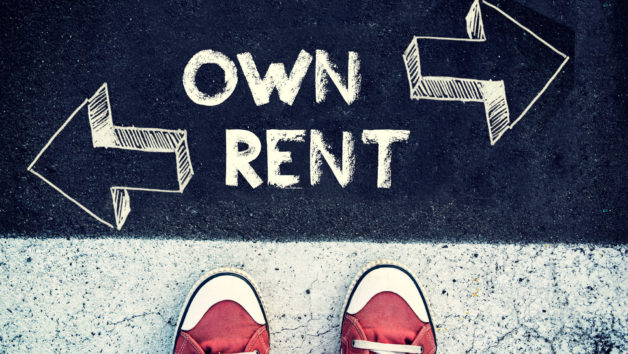Renting vs. Buying in Today’s Market
The current Hawaiian housing market remains fairly strong, although condo sales are down slightly in some areas. The state’s population continues growing, and foreign buyers make up a large percentage of those purchasing Hawaiian properties. The demand for Hawaiian housing still far outstrips the supply, and it remains an expensive place to live. Housing is priced at historic highs, and Hawaii is considered the least affordable market in the nation.
However, home prices did not rise by much in 2019, and are not expected to rise a great deal this year. Keep in mind that there are differences in market conditions and home values depending on the area.
The Argument for Buying
If you are considering relocating to paradise, whether renting or buying in today’s market is the best choice depends on several factors. Right now, mortgage rates are still low, so even though house prices are high, borrowing funds is relatively cheap. If you opt for a fixed-rate mortgage, you know what your monthly payments will entail for the next 15 to 30 years, or the life of your loan. Economic conditions could cause mortgage rates to rise in the near future, so locking in a low rate now is a smart move.
If the housing market remains strong, you are building equity in a dwelling that is likely to pay off handsomely when you sell, as long as you intend to live there for a significant period of time. For example, if you purchased the average-priced home in the state back in 2009, you would have paid $514,550. Sell that same property ten years later, and you would have received $733,125. During that period, the average price did decline for several years due to the effects of the Great Recession, so if you had to sell a few years after the purchase, you would have lost money.
The Case for Renting
Although mortgage rates are low, if you do not have a substantial amount for a down payment, preferably around 20 percent of the purchase price, you will end up paying higher rates and fees. Due to the expense, potential first-time homebuyers in Honolulu often find the dearth of affordable properties makes renting a more viable option.
With a rental, you do not have to worry about making repairs to the property or even to appliances, should they break down. That is the landlord’s responsibility.
Renting makes more sense for anyone who isn’t sure whether or not they want to stay in Hawaii. Moving is much simpler for renters than for anyone owning a home, although it is possible to rent out a home in Hawaii fairly quickly if you hire a good property management company. If you think you will stay in Hawaii for less than five years, renting is the better bet.
Contact Us
If you’re looking to buy or sell a home or find a rental property, you need a knowledgeable, experienced realtor familiar with every aspect of the Hawaiian real estate market. Contact Island Realty Group LLC at 808-689-7407 or IslandRealtyGroup@irghi.com.




